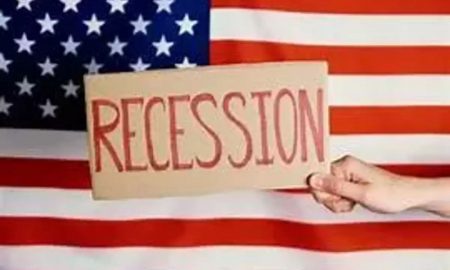
Advantages And Disadvantages Of Home Equity Loans

 Are lenders offering you money these days? Well, congratulations on that, but it certainly implies that you don’t require that money. No lender on earth would offer debt to someone who doesn’t have the potential to repay. However, a flow of cash will surely set the ball rolling for you.
Are lenders offering you money these days? Well, congratulations on that, but it certainly implies that you don’t require that money. No lender on earth would offer debt to someone who doesn’t have the potential to repay. However, a flow of cash will surely set the ball rolling for you.
After all, you can utilize the money by investing it in the market to accentuate your wealth. You can also use it to remodel or renovate your home or even buy a new four-wheeler. Your home equity is just sitting idle, and it wouldn’t be a good idea if you don’t capitalize on the advantages. But before everything, you need to understand what a home equity loan is.
What Is a Home Equity Loan?
A home equity loan is almost identical to a mortgage. However, you can only avail of these loans if you have already borrowed. This is the reason why home equity loans are also popular as second mortgage. To give you a better idea, suppose your home is acting as collateral after availing of a loan.
Once the value of your property goes up, it has more equity which means that you can avail of a second mortgage and get a loan based on the increased value. A HEL or home equity loan and a HELOC or Home Equity Line of Credit (HELOC) are not identical. While HELOC happens to be a credit line you can utilize whenever you feel like, a HEL is a mortgage through which you lay your hands on a lump sum and make payments in installments until you pay off the full amount. This is the basic difference.
The Downside of Home Equity Loans

If you do not repay your loan on time and your home is collateral, the lender can initiate foreclosure. However, you have to the mortgage before any money goes into the lender’s pockets. This is why the lender might not opt for foreclosure if you fail to shell out payments on home equity loans, especially if your home isn’t worth as much as what you receive on the primary mortgage. As compensation for the lender, home equity loans come with higher rates of interest. This is one of the major reasons why people usually don’t avail of home equity loans.
Why would an individual make more payments for something that’s almost the same when they can easily avail a cash-out refinance? It might seem like there is no risk involved even if you do not repay on time as the lender can’t initiate a foreclosure on your property. This is certainly an advantage for you. But the lender can initiate legal proceedings against you to reclaim the amount from you.
Tax Consequences of HELs

You don’t have to pay taxes on the additional equity that you used to avail yourself of a cash-out refinance previously. However, this is unless you utilized the proceedings to remodel or renovate your home. Now, you can use the amount of money from a home equity loan for almost anything. You will be eligible for the deduction of the mortgage. As a result, the gap between the lower interest rate of mortgages and the higher rate of interest of home equity loans eventually reduced for individuals who availed the loans to buy consumer goods or consolidate debt.
However, the situation changed owing to the Tax Cuts and Jobs Act of 2017. The extra cash you take out from cash-out refinances, and the amount received from home equity loans are treated in the same manner for a tax deduction. The IRS states that the deduction of mortgage interest is possible for the sum of money taken out if it is to buy, renovate, or build the home that acts as collateral for the loan.
Home Equity Loan vs. Cash-Out Refinance
In case of a cash-out refinance, borrowers might need to shell out an additional 0.125% interest. When it comes to home equity loans, a borrower might need to pay 1% to 3% extra every year in interest. Since the interest payments are less for a refinance than a home equity loan, you might believe that qualifying for a cash-out refinance is easier.
Overall, cash-out refinances might seem to be a simpler approach when aim to free up your home equity. However, you have to consider every aspect of your situation and then decide what would be more beneficial for you.
More in Loans & Mortgages
-
`
Curious About Travis Kelce’s Net Worth? Here’s the Scoop!
Travis Kelce’s name echoes through NFL stadiums, synonymous with athletic prowess and electrifying plays. But beyond his touchdown celebrations and record-breaking...
June 10, 2024 -
`
Everything You Need to Know About an Assumable Mortgage
What is an Assumable Mortgage? Whether you are a buyer or a seller, understanding the concept of assumable mortgages can open...
June 6, 2024 -
`
Layoff vs. Fired – Understanding the Crucial Differences
When it comes to job loss, understanding the distinction between being layoff vs. fired is crucial. While both situations result in...
May 30, 2024 -
`
When Are Business Taxes Due 2024? Essential Dates and Deadlines
Tax deadlines can be daunting, but fear not! Let’s break down everything you need to know to stay on top of...
May 22, 2024 -
`
How Much Does Jeff Bezos Make Per Hour? It’s More Than You Think!
Jeff Bezos, a name synonymous with innovation and wealth, stands as one of the world’s richest individuals. While Bernard Arnault and...
May 16, 2024 -
`
What is Portfolio Investment Entity (PIE) and How Can it Benefit You?
In the intricate world of finance, individuals seek avenues to optimize their investments while minimizing risks. One such avenue gaining traction...
May 9, 2024 -
`
What is a Bank Statement? Understanding its Definitions, Benefits, and Prerequisites
Ever wondered where your money goes? A bank statement is like a financial report card, giving you a clear picture of...
April 30, 2024 -
`
Branded Content: A Genuine Way to Connect With Your Audience
Have you ever binge-watched a series on Netflix, only to later realize that the beverage everyone’s sipping on is that brand...
April 23, 2024 -
`
What Car Does Jeff Bezos Drive? Find Out Inside His Exclusive $20 Million Collection
Have you ever wondered what car does Jeff Bezos drive? This man’s tastes in vehicles are as expansive as his business...
April 17, 2024















You must be logged in to post a comment Login